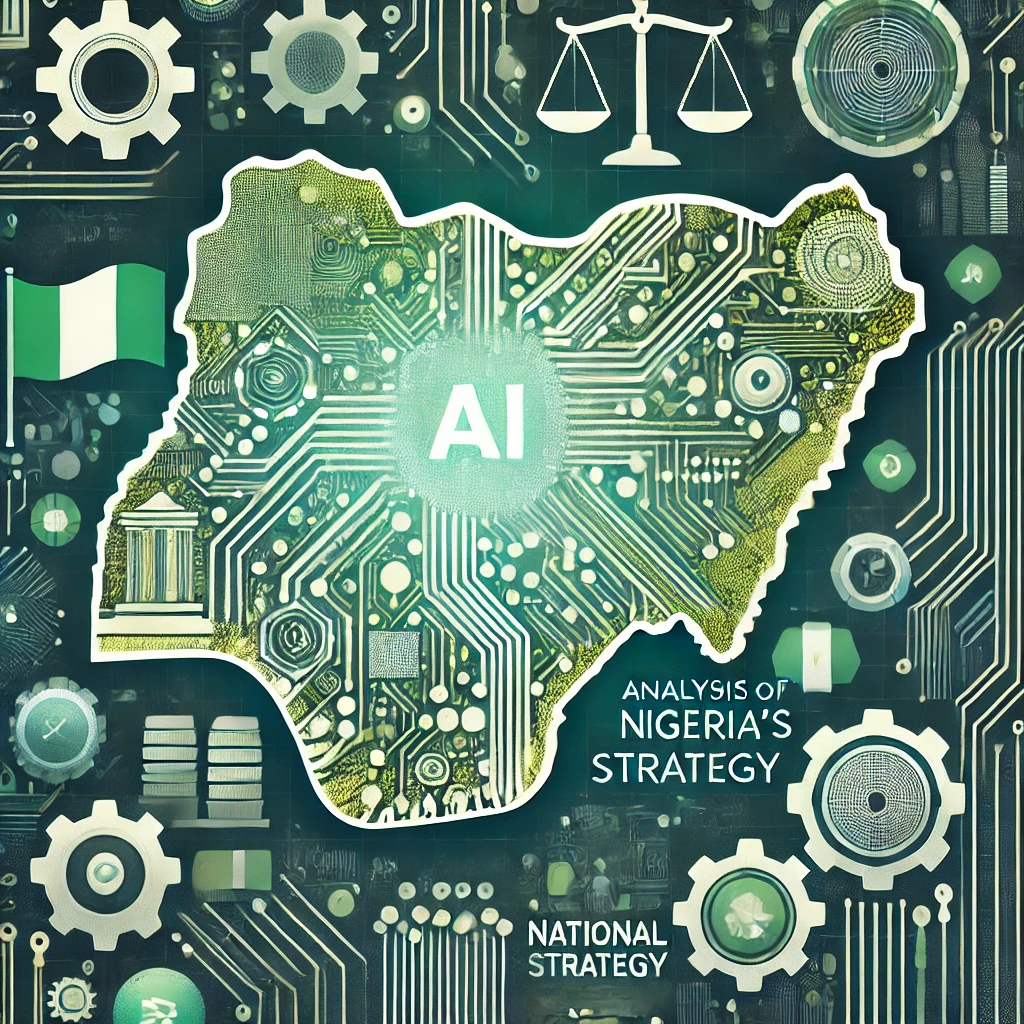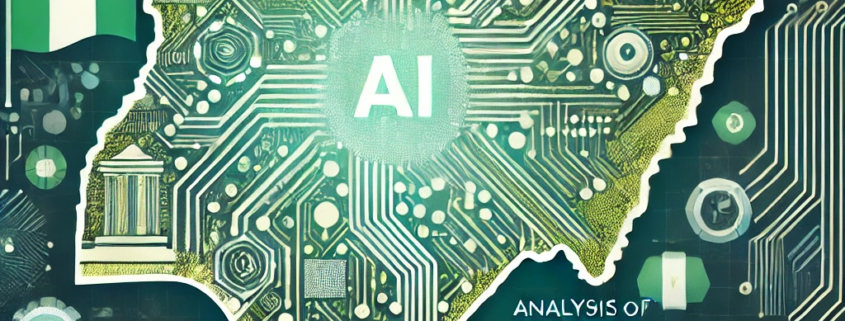In a bold and visionary move, Nigeria is laying the foundations for what would be its first national AI Ethics curriculum for secondary schools — a framework that seeks to equip young minds not only with technical know-how, but with a deep sense of responsibility in a rapidly digitising world. Behind this unfolding initiative are carefully designed pilots, cross-stakeholder collaboration, and an emerging policy roadmap that aim to transform AI education in Nigeria from aspiration to reality.
Table of Contents

A New Chapter in AI Ethics Education: From Idea to Blueprint
The ambition is clear: to build, from the ground up, a curriculum that supports ethical understanding of artificial intelligence in secondary schools across Nigeria. Unlike many tech-driven academic programmes that prioritise coding or tool usage alone, this AI Ethics curriculum places ethics, human values, and societal impact at its core.
Drawing upon global best practices and local needs, the design process has involved educators, curriculum developers, ethicists, AI specialists, and policy makers. Its architecture proposes integration across disciplines — not limited to computer science or ICT classes, but woven into social sciences, languages, and even arts — making AI Ethics part of broader critical thinking education.
To test viability, pilot programmes are being rolled out in selected states. These pilots are designed to trial lesson plans, instructional resources, teacher training modules, assessment strategies, and feedback loops. Early reports suggest enthusiastic uptake from teachers keen to expand beyond rote teaching towards more reflexive, inquiry-based instruction. The pilots also serve as a testbed for identifying contextual challenges: connectivity gaps, teacher capacity, resource constraints, and regional diversity in student needs.
This iterative approach ensures that when the curriculum eventually scales, it will have been stress-tested, locally adapted, and vetted by those who will use it.
Challenges of Scale: Infrastructure, Training, and Equity
Rolling out a national AI Ethics curriculum of this nature is no small feat. The ambitions collide with old constraints.
First, infrastructure is uneven across Nigeria’s states. Some schools lack reliable electricity, let alone stable internet access. For a curriculum that anticipates use of digital tools, AI simulations, and online modules, this disparity could leave students in remote or under-resourced areas behind.
Second, teacher capacity presents both an opportunity and bottleneck. Many educators, especially in rural or public schools, have limited exposure to AI or its ethical implications. Without robust capacity-building programmes, even the best curriculum will fail in its execution. To remedy this, the design includes phased teacher training (both pre‐service and in-service), peer coaching, and mentoring networks.
Third, equity and inclusion must guide every step. Nigeria is ethically and regionally diverse, and the curriculum must avoid reinforcing biases. AI systems and case studies used in class should reflect local contexts, multiple languages, and inclusive perspectives. In addition, schools in lower-income zones must be provided with supplementary support—hardware, connectivity, and maintenance—to ensure all students can fully engage.
Lastly, policy coherence and continuity are essential. The curriculum must lock into Nigeria’s broader educational frameworks, regulatory environment, and national AI strategy. Political shifts or funding gaps should not derail long-term progress. To safeguard this, the roadmap includes legal anchoring, partnerships (public–private, NGO, academia), and mechanisms for monitoring and accountability.

Roadmap to National Adoption: Strategy, Policy, and Partnerships
Transitioning from pilot to full national adoption hinges on a well-articulated policy roadmap for AI Ethics. This roadmap encompasses several phases:
- Pilot consolidation and evaluation
After the first wave of pilot deployments, evaluation data—qualitative teacher feedback, quantitative student performance metrics, deployment logs—will be gathered. Insights will guide revisions in content, pedagogy, assessment, and support systems. - Curriculum codification and standardisation
Revised modules will be formalised and packaged as a national standard. This includes syllabi, teacher guides, student activity packs, assessment tools, and digital resource repositories. Localization will remain a feature—allowing states or schools to adapt certain examples, languages, or case studies. - Policy endorsement and institutional anchoring
The curriculum needs formal adoption through national bodies—such as the Federal Ministry of Education, the National Educational Research and Development Council (NERDC), and relevant regulatory agencies. Legislation or policy directives may codify teacher training, resource allocation, and accountability frameworks. - Teacher training and professional development
A phased scale‐up of teacher training programmes must accompany rollout. This includes face-to-face sessions, online modules, peer communities of practice, and continuous support. Training curricula themselves must be aligned with AI Ethics education. - Resource deployment and infrastructure support
States and school systems will require hardware (computers, tablets), software (AI simulation tools, analytics dashboards), reliable internet, and maintenance agreements. Budget lines and external funding mechanisms (e.g. grants or public–private partnership models) should be secured. - Monitoring, evaluation & iteration
Continuous monitoring through internal audits, external reviews, and feedback loops will keep the system responsive. Based on data, course adjustments, remediation strategies, or scaling decisions will be informed. - Sustainability and evolution
AI advances rapidly. The curriculum and its associated tools must evolve, incorporating new ethical dilemmas (e.g. generative models, algorithmic bias, data privacy) and emerging use cases. A standing advisory board of educators, technologists, ethicists, and students should guide iterative updates.
Throughout, partnerships are key. Collaboration with universities, AI research centres, NGOs, philanthropic funders, technology firms, and international agencies can supply content, toolkits, teacher training, infrastructure grants, and evaluation expertise.
Significance for Nigeria’s Future: Ethics, Agency, and Global Readiness
Why does this matter?
First, AI is not just a technical discipline; it’s a social force. By grounding AI Ethics into early exposure, Nigeria can nurture a generation of citizens who understand not just how AI works, but what decisions it should or should not make. The curriculum aims to build agency, so students can question AI — its biases, data policies, accountability, and societal impact — rather than be passive users.
Second, beyond the moral imperative, this initiative is an investment in future competitiveness. As AI becomes deeply embedded across industries — from agriculture and health to governance and finance — Nigeria’s youth must be prepared not just to consume, but to innovate, regulate, and lead.
Third, this is an opportunity for thought leadership in Africa. If Nigeria successfully models a national AI Ethics curriculum, the template could influence neighbouring countries contending with similar challenges. It positions Nigeria not just as a consumer of AI, but as a pioneer in AI pedagogy and governance on the continent.
Fourth, it responds to inequalities in digital futures. Without purposeful design, AI education could exacerbate divides: students in elite schools get access while others lag. But by centring AI Ethics, inclusion, and equity from the start, Nigeria strives to make AI literacy a universal right, not a privilege.
Finally, for policymakers, it signals that Africa can participate not only in the technical construction of AI but also in shaping the values, norms, and rules that govern it globally. In a world wrestling with AI governance, Nigeria can assert perspectives that reflect African priorities — fairness, communal welfare, local knowledge, multilingualism, and social justice.

Conclusion
Nigeria’s journey to create its first national AI Ethics curriculum for secondary schools is ambitious, urgent, and consequential. It is not merely about teaching algorithms or tools; it is about nurturing a generation capable of shaping AI — not being shaped by it. Through careful design, robust pilots, infrastructure investment, teacher development, policy anchoring, and ethical vigilance, Nigeria aims to turn this vision into reality. If successful, it will mark a milestone not only for Nigerian education, but for how the Global South engages with the ethical frontiers of technology.
Join Our Social Media Channels:
WhatsApp: NaijaEyes
Facebook: NaijaEyes
Twitter: NaijaEyes
Instagram: NaijaEyes
TikTok: NaijaEyes




